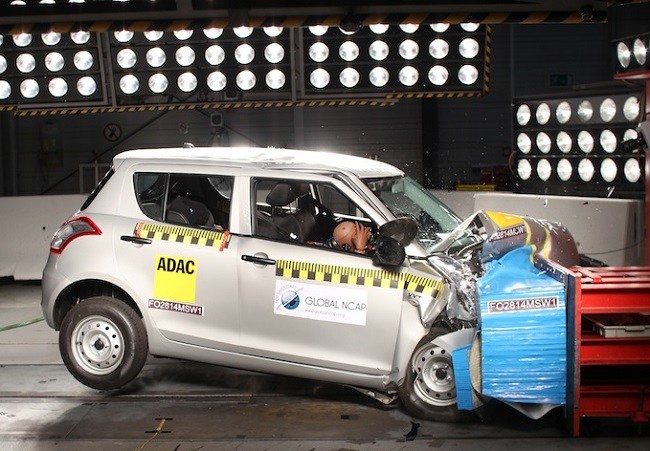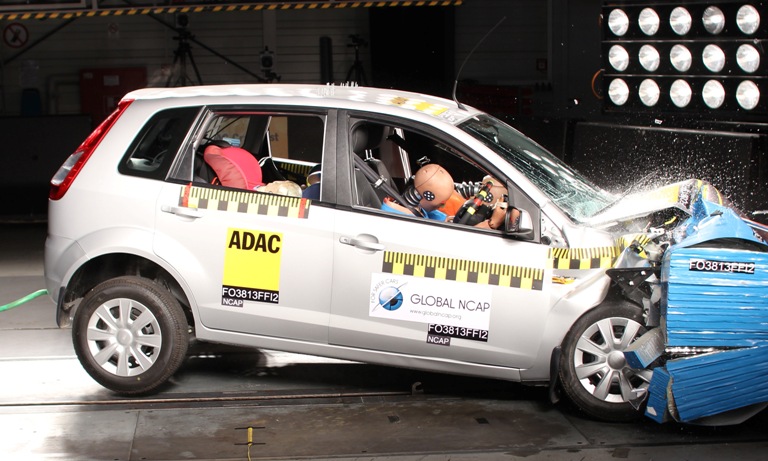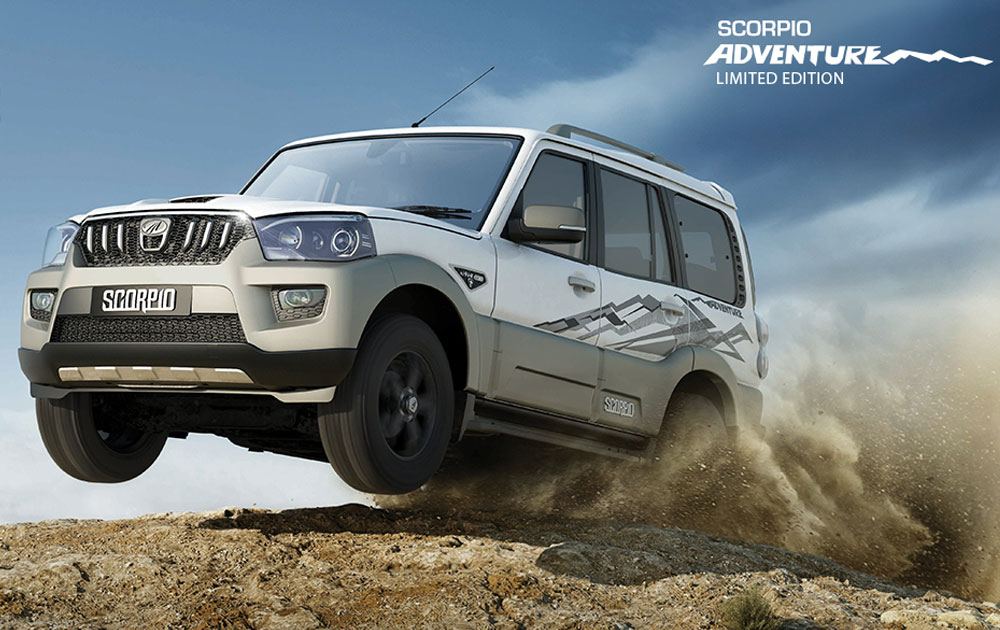Five Indian made cars which have failed crash test of Global NCAP
Indian cars are not performing well in the crash tests. Once again few Indian popular models have failed in the test. The Indian cars which have failed in safety test are the Renault Kwid, Maruti Suzuki Celerio, Maruti Suzuki Eeco, Mahindra Scorpio and Hyundai Eon. All of them have given zero stars because of bad safety features.
Crash test of Global NCAP:
The test is clear and simple. Cars need to have some basic safety equipment, such as dual airbags. These cars’ airbags were not good enough to match the standard. They have failed even before the impact of the crash. The car also faced the test of the structural integrity of body, and almost all failed to perform well.
Currently, India is at number six in largest market of the automobile and it is estimated that by 2020, the Indian automobile market will reach the fourth spot, overtaking Germany and South Korea. India is a global manufacturing hub for many automobile companies. This is the reason why Global NCAP has appealed to the Indian authorities to develop a New Car Assessment Program or NCAP, for India.

Global NCAP’s first India crash test was carried out nearly three years ago with five models, which included Maruti Suzuki Alto800, Tata Nano, Ford Figo, Hyundai i10 and VW Polo. The second test in 2014 used two models – Datsun GO and Maruti Suzuki Swift.
Other giant markets such as Unites States, China, Latin America, Australia, EU and even some of the South Asian countries have their own NCAP. But India has somehow managed to go on without NCAP.
The latest trials carried out by Global NCAP, displayed that in a crash, all the cars are not providing enough safety, which leaves the driver with life-threatening injuries. All the cars scored only two stars each for child safety, and the Maruti Suzuki Celerio, which was reached only to one star.

Global NCAP on safer cars:
The secretary general of Global NCAP, David Ward said, “The latest ‘Safer Cars For India’ test results show how important it is for cars to have a body shell that can remain stable in a crash. This is an absolutely crucial pre-requisite for occupant safety together with the fitment of at least front airbags. It is very surprising that a manufacturer like Renault introduced the Kwid initially lacking this essential feature. Global NCAP strongly believes that no manufacturer anywhere in the world should be developing new models that are so clearly sub-standard. Car makers must ensure that their new models pass the UN’s minimum crash test regulations, and support use of an airbag.”
Renault for its part has already declared that it will revamp the Kwid to make it safer. It comes in range with cars such as Hyundai Eon and the Maruti Suzuki Alto and they both have also failed in similar tests.
Renault India has said in a statement, “Indian Government has announced that the crash test regulation for the existing cars will come into effect in 2019 and for the new cars in 2017. Renault is committed to complying with these timelines.”
Meanwhile, Maruti Suzuki has denied commenting and we are waiting for the statements from Hyundai.

There is also an exception, which is Mahindra Scorpio. In the first round of crash test, the model has failed terribly. After that, the company has moved towards a decision of upgrading all the models. The car provides dual airbags as at least optional on every model. This new development has applied to the entire range of Mahindra vehicles.
